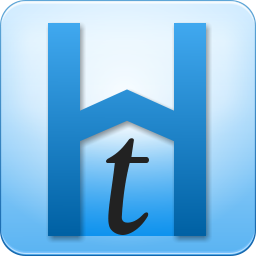Don't re-invent the wheel
Information in plain text files
I have been an obsessive text noodler, web text clipper, note taker, image saver for as long as personal computers have been able to save files to hard drives. I have tried a series of programs over the years. Some of them have been wonderful, some have been quirky but all of them eventually disappointed me in someway and I've wanted to move on to something else. That's when I usually discovered that the information I had carefully squirrelled away were held captive in some proprietary binary format that other programs couldn't read. Those notes were effectively lost. Organized bits saved on a hard drive that I could do nothing with.
 rom these experiences I learned that storing important information in a proprietary format is a fools game. The owner of the format is the one that ultimately controlled my access to the information. And I also learned that most of what I saved was text; typed or copied words with perhaps with some minimal formatting such as headings and bolding. Chunks of code or quotes from articles and websites. Sometimes I'd save images, both linked to the text or independent.
rom these experiences I learned that storing important information in a proprietary format is a fools game. The owner of the format is the one that ultimately controlled my access to the information. And I also learned that most of what I saved was text; typed or copied words with perhaps with some minimal formatting such as headings and bolding. Chunks of code or quotes from articles and websites. Sometimes I'd save images, both linked to the text or independent.
Also, using a full-scale spreadsheet program to keep lists of information was a huge waste of resources. And again, the owner of the format controlled my access. In most cases a simple plain-text CSV file would serve my purposes admirably.
 ext files can be easily moved to new computers, viewed on iPhones and Android devices, moved between Windows, Linux or Mac. All operating systems can read and write text files. The future, I realized, is simple!
ext files can be easily moved to new computers, viewed on iPhones and Android devices, moved between Windows, Linux or Mac. All operating systems can read and write text files. The future, I realized, is simple!
Directories for organization
 ll computer systems offer the option to create directories as one of their core services. It is a simple, tried and true method for storing and organizing files that makes it easy to locate later. The files can be accessed through a multitude of ways including the built-in file browsers. How great is that? Naturally I feel that Texthaven is the best way to work with stored information but the deal is: you're not tied in. If you don't agree, try something else. All your notes are sitting there waiting for you, organized and readable, without having to go through some arduous export-import process.
ll computer systems offer the option to create directories as one of their core services. It is a simple, tried and true method for storing and organizing files that makes it easy to locate later. The files can be accessed through a multitude of ways including the built-in file browsers. How great is that? Naturally I feel that Texthaven is the best way to work with stored information but the deal is: you're not tied in. If you don't agree, try something else. All your notes are sitting there waiting for you, organized and readable, without having to go through some arduous export-import process.
Notes and research material stored in self contained directory trees are easier to backup, search or synchronize using Dropbox, etc.
Texthaven program philosophy
As few pop ups as possible
I've endeavoured to make as little use of pop up dialog boxes as possible in Texthaven. Creating a note is quickly done by entering a title in the address bar and hitting enter rather than a pop up dialog. Note created and ready and waiting for new text with no mouse clicks. Everything necessary for browsing and editing simple text notes is visible ... and nothing else. Searching is also done via the Multibar. The only time you'll see a pop up in Texthaven is when it's a major non-reversible operation, such as deleting a column in a CSV file.
Small
Texthaven is a small, portable application can be run from a memory stick. It requires no extra runtime files. It loads quickly over the network and still accesses the same note store as if on the local machine. Even without running Texthaven, the notes are available to you over your local LAN.
No tree view
And, I'm sorry, but I don't think that tree views are the best way to show directory and file information. They can get cluttered too quickly and scroll off the side once you start drilling down a few directly levels. While it's important to know where you are, it's best to just display the current folder (with siblings and children) and let the rest of the folder tree fade from your attention.
